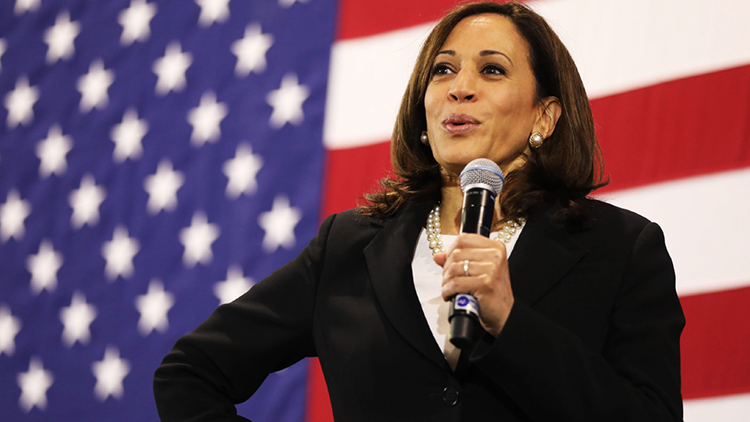US Vice President Kamala Harris, who could potentially become the first woman to lead the United States, is expected to bring a distinctive approach to various critical issues in US politics. As a woman of South Asian and African American descent, she is anticipated to have her own way of addressing issues such as the Israeli-Palestinian conflict, relations with China, and dealings with Russia. However, analysts currently have limited insight into her exact positions on these matters. One area where Harris has made her stance abundantly clear is on climate change.
As Harris steps into the limelight for the 2024 presidential race, her potential ascension to the highest office in the United States signals a pivotal shift in climate and energy policies. Throughout her career, Harris has highlighted the urgency of combating climate change, stressing its far-reaching impacts on global communities. Her speech at the 2023 United Nations climate summit in Dubai encapsulated her stance: “The urgency of this moment is clear. The clock is no longer just ticking, it is banging. And we must make up for lost time.”
Harris’s environmental vision aims to build upon and protect the climate achievements of the Biden administration. Her expected policies and initiatives promise to go into a direction to steer the United States towards a more sustainable and resilient future.
As a U.S. senator, Harris co-sponsored the Green New Deal, a comprehensive plan advocating for a drastic reduction in greenhouse gas emissions and a transition to renewable energy sources. Although the Green New Deal has not yet been enacted, Harris insists she remains committed to its principles. She supports a carbon fee to hold polluters accountable and increase government spending on climate action. Her 2020 presidential campaign climate plan proposed a $10 trillion investment over a decade, reflecting her dedication to substantial financial commitments in addressing climate change.
Harris has consistently advocated for stringent enforcement of environmental regulations. She has called for a “climate pollution fee” to penalize companies emitting greenhouse gases and has signaled her intention to enhance prosecution efforts against fossil fuel companies. This approach aims to ensure that corporations bear the financial burden of their environmental impact, promoting a shift towards cleaner practices.
As Vice President, Harris has integrated climate change considerations into foreign policy. At the 2023 United Nations climate summit, she announced the U.S. commitment to double energy efficiency and triple renewable energy capacity by 2030. Additionally, she pledged $3 billion to the Green Climate Fund to aid developing nations in adapting to climate challenges. These initiatives highlight her belief in international cooperation and support for global climate resilience.
Harris’s climate strategy places a strong emphasis on environmental justice. She has advocated for significant investments in disadvantaged communities disproportionately affected by climate impacts. As Vice President, she supported allocating $20 billion for the EPA’s Greenhouse Gas Reduction Fund to assist these communities. This focus on justice aims to ensure that the benefits of climate action are equitably distributed.
Harris champions the expansion of renewable energy and energy-efficient technologies. She is a vocal advocate for electric heat pumps, which reduce climate pollution and lower energy costs for families. Harris has highlighted the dual benefits of renewable energy investments: reducing household expenses and creating jobs. Her ‘Women in the Sustainable Economy’ initiative aims to provide job training for women in climate-smart industries, reflecting her commitment to inclusive economic growth.
Harris draws inspiration from young climate activists and often emphasizes their role in driving change. Her support for grassroots movements underscores her recognition of the power of collective action in achieving climate goals.
The potential election of Harris comes with significant political implications and her stance regarding climate and environmental issues is expected to be one of the big differences between her and former President Donald Trump, a vocal climate change skeptic, who has vowed to dismantle many of the Biden administration’s climate policies. He aims to boost oil and gas production and reduce environmental regulations, posing a stark contrast to Harris’s vision. The 2024 election is thus a critical juncture for the future of U.S. climate policy.
A Harris administration would likely prioritize the continuation and expansion of Biden’s climate policies. This includes defending the Inflation Reduction Act and maintaining robust Environmental Protection Agency (EPA) regulations. Harris’s close working relationship with key environmental leaders, such as EPA administrator Michael Regan, suggests a seamless transition in climate leadership.
Kamala Harris’s expected approach to U.S. climate and energy policies represents a significant commitment to addressing climate change through comprehensive and forward-thinking measures. Her vision seems to encompass strong enforcement, international collaboration, and a focus on renewable energy and environmental justice. As the 2024 election approaches, the stakes for climate action are higher than ever, and Harris stands poised to lead the charge towards a sustainable future.







